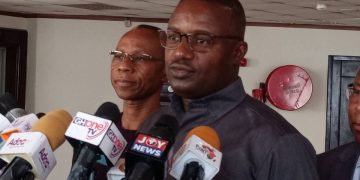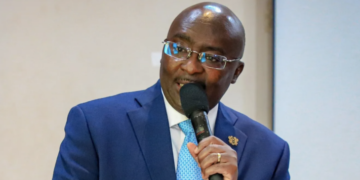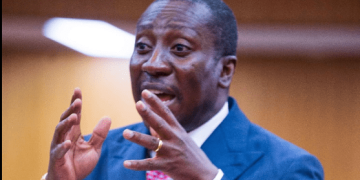Minister of Foreign Affairs and Regional Integration, Shirley Ayorkor Botchwey, has urged the ECOWAS Council of the Wise (CoW) to do more to promote peace and security in the sub-region.
She said the Council, which was established by the 1999 Protocol Relating to the Mechanism for Conflict Prevention, Management, Resolution, Peacekeeping, and Security, had become one of the key pillars of the peace and security architecture of ECOWAS and as a supporting organ, created purposefully for preventive diplomacy and mediation interventions in member states within the region.
Madam Ayorkor Botchwey, who is the current Chairperson of the ECOWAS Council of Ministers, said this on Monday at the ECOWAS consultation and orientation workshop for the re-constitution of CoW.
The two-day workshop is meant to sensitise and prepare the member states’ nominees of the Council to discharge their duties.
The reconstituted Council consists of 30 members, two from each of the 15 member states of ECOWAS.
Ghana’s representatives to the Council are Mrs Gifty Afenyi-Dadzie, a former member of Council of State and Dr Williams Collins Asare, a former Country Representative of the United Nations High Commissioner for Refugees.
The representatives of Nigeria are former President Goodluck Ebele Jonathan and Mrs Salamatu H. Suleiman, former Minister of Foreign Affairs of Nigeria.
Madam Ayorkor Botchwey said the socio-political tensions generated and their impact on structural and proximate peace and security trends reinforced the need to urgently have a new CoW to assist ECOWAS in delivering on its peace and stability mandate as a necessary condition for continuous development and regional integration efforts.
She said the human and material cost of deploying peace-making efforts, particularly conflict prevention measures such as mediation and preventive diplomacy initiatives, was far less than the cost for the deployment of peacekeeping or peace-enforcement interventions.
Madam Ayorkor Botchwey said most conflicts within the region fell within the ambit of peace-making, where the Council members’ experience and expertise would come in handy to assist ECOWAS in ensuring that there was sustainable peace and stability within the region, as a sine qua non, for the regional integration agenda.
Madam Ayorkor Botchwey noted that in the past, members of the CoW had been involved in the prevention and resolution of some of the critical conflicts and disputes in member states.
She made mention of General Abdulsalami Abubakar, the former Head of State of Nigeria, who was part of the first set of the CoW Members, and who specifically led the Liberia Peace processes culminating in the adoption of the Comprehensive Peace Agreement.
She recalled that that Agreement led to the end of the civil war and the subsequent return to constitutional rule in Liberia.
The Minister said the new members of the Council had been engaged in the prevention and resolution of political crisis and disputes in other instances, such as in Guinea, Guinea Bissau and Niger.
“However, in the past few years, the functionality of the CoW as a Preventive Diplomacy and Mediation Organ of ECOWAS has diminished, as there has not been any reconstitution of the Council in a while.
”She reiterated that it was gratifying to note that most of the eminent nominees of the Council were no strangers to the challenges in the region in the areas of peace and security, as they all had, in one way or the other, contributed to either the prevention or resolution of one dispute or the other in member states and within their community.
“It is, therefore, heartwarming that you are availing your experiences and expertise in conflict prevention and resolution for the good of the entire Community. The Community is indeed, most grateful to you,” she stated.
The Minister said the current socio-political situation within the region, fuelled by disenchantments by community citizens, partly due to perceived reversals of democratic gains and dividend and the sentiments of marginalisation and exclusion, had many times been violently expressed.
GNA



















































































